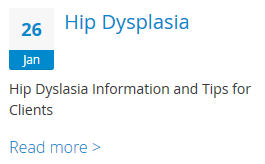Menu
Close Menu
-
Dog
-
Cat
- Horse
-
Pet Pharmacy
- Shop All
- Allergy Relief
- Antibiotics
- Antifungal
- Anti-Inflammatories
- Anxiety & Calming
- Dewormers
- Diabetes
- Digestive & Liver
- Ear Health
- Endocrine Health
- Eye Health
- Flea & Tick
- Heart Health
- Heartworm
- Hot Spot & Wound
- Immune System
- Neuromuscular
- Pancreatic
- RX Diets & Treats
- Respiratory & Cough
- Seizure & Epilepsy
- Skin and Coat
- Thyroid
- Urinary & Kidney
- Vaccines
- Vitamins & Supplements
- Weight Management
- Supplies & First Aid
- Pain
- Holistic & Natural
-
A to Z Symptoms
- Shop All
- Addison's Disease
- Allergies & Atopy
- Anxiety
- Arthritis & Joint
- Bad Breath
- Barking
- Bladder Stones
- Bronchitis
- Anal Glands
- Caridiomyopathy
- Chewing & Licking
- Coccidiosis
- Constipation
- Coprophagia
- Cough
- Cushing's Disease
- Diarrhea
- Dry Eye
- Ear Infections
- Ear Mites
- Edema
- Feline Herpes
- Gingivitis
- Glaucoma
- Hairballs
- Heart Problems
- Hookworms
- Hypothyroidism
- Incontinence
- Inflammatory Bowel
- Insect Bites
- Kennel Cough
- Kidney Disease
- Lice
- Liver Disease
- Mange
- Motion Sickness
- Nausea
- Periodontal Disease
- Pink Eye/Conjuntivitis
- Pyoderma
- Ringworm
- Roundworms
- Seborrhea
- Seizure & Epilepsy
- Senility
- Shedding Control
- Skin Irritation
- Skunk Odor
- Stomatitis
- Stress
- Supplies & First Aid
- Tapeworms
- Tartar Control
- Tear Stain
- Pet Education
Free Shipping $49+
877-847-7389







